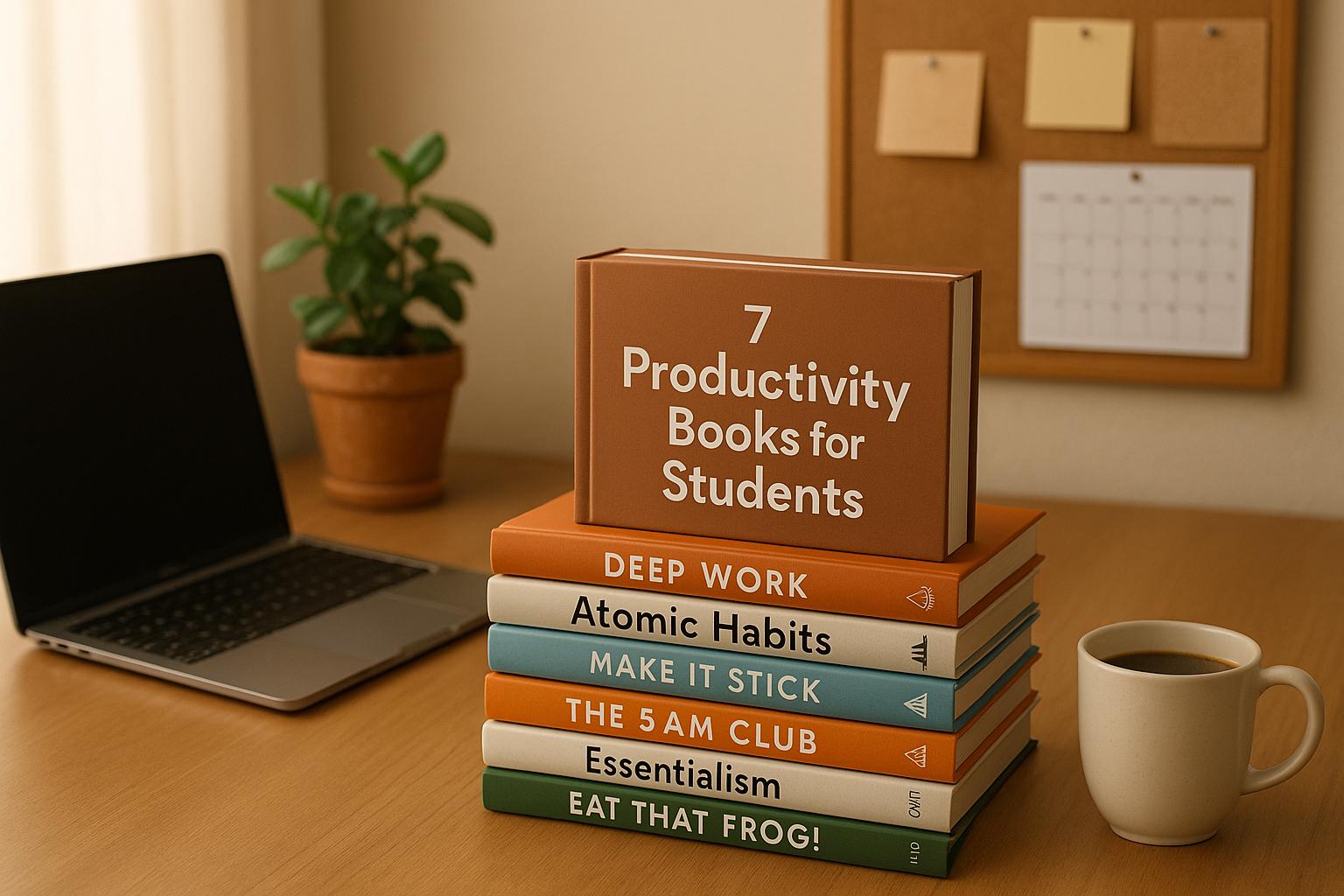Business coaches and executives read books for professional growth, but their preferences differ based on their roles:
- Business Coaches: Focus on communication, coaching techniques, and client development to improve guidance and support skills.
- Executives: Prioritize strategy, market analysis, and leadership to drive organizational decisions and growth.
Quick Comparison
| Role | Primary Reading Focus | Key Objectives |
|---|---|---|
| Business Coaches | Communication, Coaching Models | Strengthen client guidance and support skills |
| Executives | Strategy, Market Analysis | Drive growth and make strategic decisions |
| Common Ground | Technology, Innovation, Leadership | Navigate changes in the business environment |
Both groups use books to apply knowledge in their work, with coaches enhancing client outcomes and executives shaping strategies. Digital platforms are increasingly popular for easy access and application of insights.
Evolution of Executive & Leadership Coaching
Business Coaches' Reading Patterns
Business coaches tend to focus on materials that improve their ability to connect with clients and sharpen their coaching techniques.
Communication and People Skills
Books that help strengthen communication and understanding are top picks for coaches. For example, Sarah Johnson from Elevate Coaching shared that her team saw a 30% boost in productivity and a 20% rise in employee satisfaction within six months after using insights from The 7 Habits of Highly Effective People. This shows how communication-focused books can lead to real, measurable results.
Beyond improving communication, many coaches also rely on structured models to guide their work with clients.
Coaching Models and Systems
| Framework Type | Primary Focus | Application |
|---|---|---|
| GROW Model | Goal-setting and action planning | One-on-one coaching |
| Leadership Development | Improving team management | Group coaching |
| Performance Enhancement | Delivering measurable results | Corporate engagements |
These models provide a foundation for the practical strategies coaches share with their clients.
Books for Client Success
Coaches often choose books they can directly recommend to clients. The key features they look for include:
- Clear, actionable strategies that clients can apply to grow professionally
- Practical examples and case studies for real-world relevance
- Frameworks for tracking progress and evaluating outcomes
"Timeless principles for effective communication and leadership success" is a major factor in book selection for business coaches, according to businessbooklist.com [1].
This focus on practical tools for clients sets business coaches apart from executives, whose reading habits often center around broader strategies. Coaches carefully curate their reading to enhance their own expertise while offering clients proven methods to build trust and achieve results.
Executive Reading Habits
Executives often choose books that help them make strategic decisions and guide their organizations. Their reading preferences reflect the challenges of leading in competitive and ever-changing markets.
Business Strategy Books
Books on business strategy are a top priority for executives, especially those that tackle strategic challenges and organizational change [1]. Common focus areas include:
| Focus Area | Purpose | Applications |
|---|---|---|
| Market Disruption | Understanding industry changes | Long-term planning |
| Competitive Analysis | Identifying growth opportunities | Strategic positioning |
| Organizational Change | Managing transitions | Change management |
| Innovation Leadership | Encouraging growth | Product development |
Books by Industry Leaders
Executives often turn to biographies and memoirs from industry leaders. These works provide insights into overcoming challenges, leading through uncertainty, and building resilience. For those seeking recommendations, Best Business Books offers expertly selected titles worth exploring.
These personal accounts don’t just add a human touch - they also provide practical lessons and real-world perspectives that complement strategic business concepts. They help executives connect broader strategies to real-life market experiences.
Market and Industry Books
Executives also focus on books that explore market trends and technological shifts. Key topics include:
- Economic Analysis: Books that delve into global market forces.
- Technology Integration: Resources on digital transformation and its impact.
- Industry Evolution: Publications that analyze how sectors are changing.
sbb-itb-1ae7b2a
Reading Patterns: Coaches vs. Executives
Coaches and executives approach reading in ways that align with their specific roles. Their priorities and how they apply what they read highlight the differences in their professional focuses.
Book Selection Comparison
Coaches focus on refining their coaching skills, while executives seek insights to guide strategic decisions. These differences reflect their unique professional goals.
| Aspect | Business Coaches | Executives |
|---|---|---|
| Primary Focus | Improving client outcomes, coaching methods | Strategic planning, market insights |
| Reading Application | Client sessions, enhancing coaching tools | Driving organizational change, long-term strategies |
Both groups increasingly favor digital formats. Devices like Kindles make it easier to annotate and revisit key points. This shift to digital reading aligns with broader trends in technology, making it simpler to apply insights in real-time.
For those looking for recommendations tailored to these roles, Best Business Books offers curated lists that cater to both coaching and executive leadership needs.
Coaches use their reading to directly improve client outcomes, while executives leverage insights to shape their organizations. These habits not only define their professional practices but also influence their career paths.
Reading Impact on Career Success
The influence of reading on career success is clear when you see how coaches and executives put what they’ve learned into action.
Using Books in Professional Work
Coaches draw from books to improve their communication skills and refine coaching methods, tailoring programs for their clients. Meanwhile, executives rely on books about market trends and strategies to guide decisions and identify growth opportunities.
| Impact | Coaches | Executives |
|---|---|---|
| Professional Growth | Boosted credibility and leadership profile | Roles in boards and executive positions |
| Practical Use | Developing client programs and techniques | Shaping corporate strategy and choices |
This practical use of knowledge often leads professionals to transition from avid readers to influential authors.
From Reader to Author
For many, the journey doesn’t stop at reading. Coaches often document their methods and success stories to build their reputation. Executives, on the other hand, share their strategic insights, which can pave the way for leadership roles. Platforms like Best Business Books highlight these transformations.
Reading doesn’t just fuel personal growth - it drives a cycle where knowledge is applied, shared, and leveraged for career advancement.
Conclusion
The reading habits of business coaches and executives are shaped by their unique professional demands. Coaches tend to prioritize resources that aid in client support and program creation, while executives focus on books that offer strategic insights and bolster leadership skills.
As highlighted earlier, these preferences align closely with their career objectives. Executives often gravitate toward materials that inform decision-making and leadership strategies, drawing on market data and industry trends to enhance organizational performance.
Despite packed schedules, both groups use digital platforms to stay consistent with their reading. This convenience has reshaped how professionals access and apply business knowledge.
To broaden their perspectives, both coaches and executives might benefit from exploring genres outside their usual scope, such as leadership biographies or memoirs. Platforms like Best Business Books help by curating tailored recommendations that align with specific career goals, whether in coaching or executive roles.
FAQs
How do book preferences differ between business coaches and executives, and what impact does this have on their roles?
Business coaches often gravitate toward books that focus on leadership development, personal growth, and effective communication, as these topics align with their role in guiding others to reach their potential. On the other hand, executives typically prefer books on strategy, innovation, and operational efficiency, which directly support their responsibilities in decision-making and driving organizational success.
These differing preferences reflect the unique demands of their roles. Coaches aim to inspire and empower individuals, so they prioritize materials that help them understand human behavior and motivation. Executives, however, seek actionable insights to solve complex business challenges and achieve measurable outcomes in their organizations.
How do business coaches and executives use digital platforms for reading, and how do these tools support their professional growth?
Business coaches and executives often leverage digital platforms like e-readers, audiobooks, and apps to access a wide range of business books conveniently. These platforms allow them to stay updated on industry trends, enhance their leadership skills, and explore innovative strategies at their own pace.
The key advantages include on-the-go accessibility, the ability to highlight and take notes digitally, and features like searchable text that make revisiting key concepts easier. Audiobooks, in particular, are popular for multitasking professionals, enabling them to learn during commutes or workouts. By integrating these tools into their routines, both coaches and executives can continuously refine their expertise and drive professional success.
How can reading books outside their usual genres help business coaches and executives advance in their careers?
Exploring books outside their usual genres can help business coaches and executives gain fresh perspectives and spark creative ideas. By stepping out of their comfort zones, they can discover new strategies, approaches, and ways of thinking that may not be found in their typical reading choices.
This broader knowledge can enhance problem-solving skills, inspire innovation, and provide a more well-rounded understanding of leadership, strategy, and other key areas. Diverse reading habits can ultimately lead to more informed decisions and greater professional growth.


